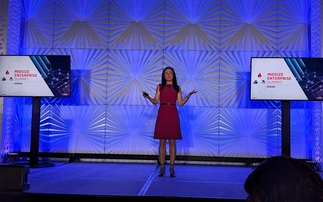The IT support reseller is urging firms to slow down their upgrade cycles for the sake of the environment
In a move bound to infuriate some hardware manufacturers, IT support services reseller Support Warehouse has this week launched a major new environmental campaign to encourage firms to extend their...
To continue reading this article...
Join Computing
- Unlimited access to real-time news, analysis and opinion from the technology industry
- Receive important and breaking news in our daily newsletter
- Be the first to hear about our events and awards programmes
- Join live member only interviews with IT leaders at the ‘IT Lounge’; your chance to ask your burning tech questions and have them answered
- Access to the Computing Delta hub providing market intelligence and research
- Receive our members-only newsletter with exclusive opinion pieces from senior IT Leaders

















